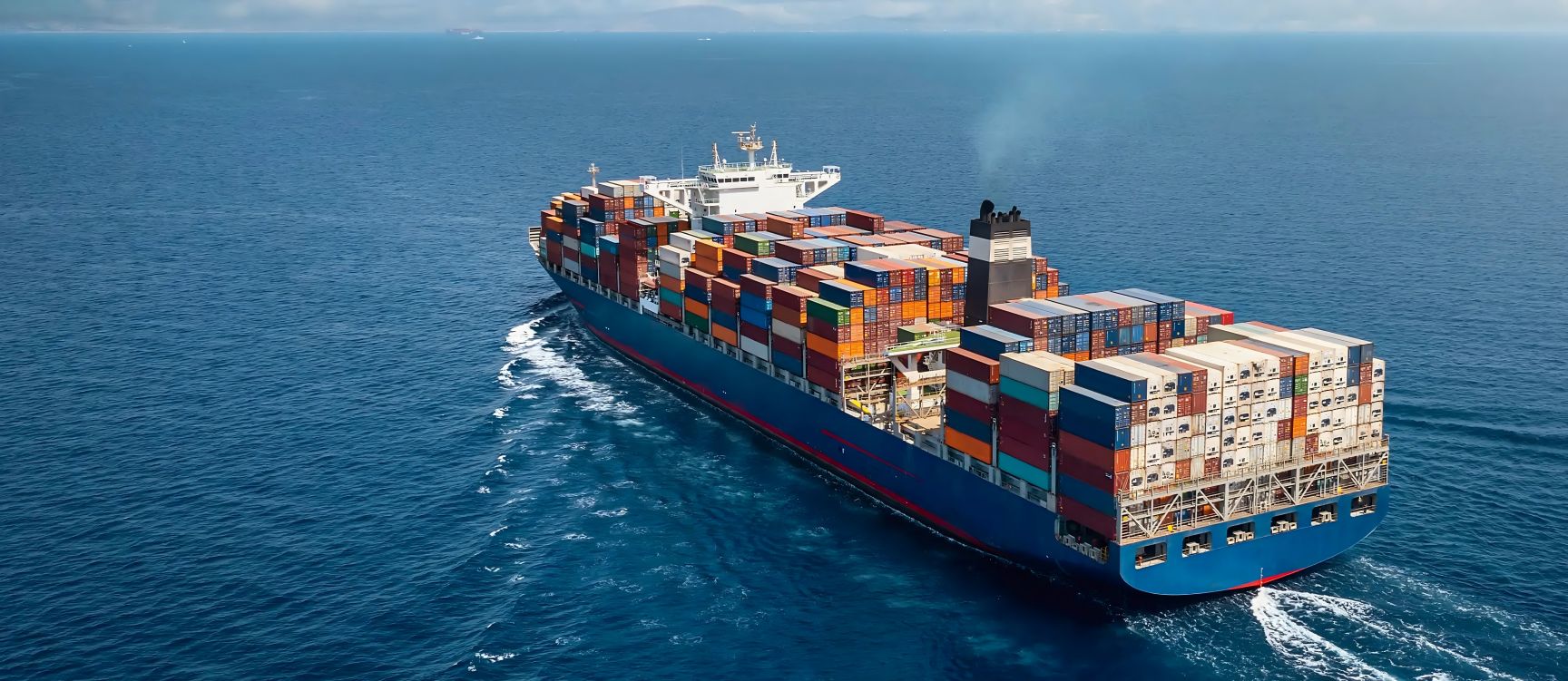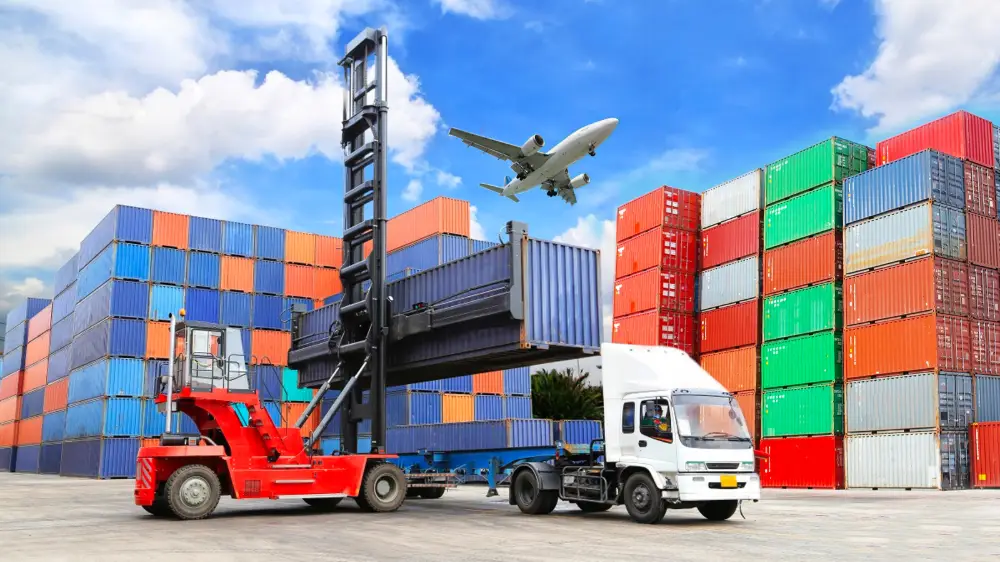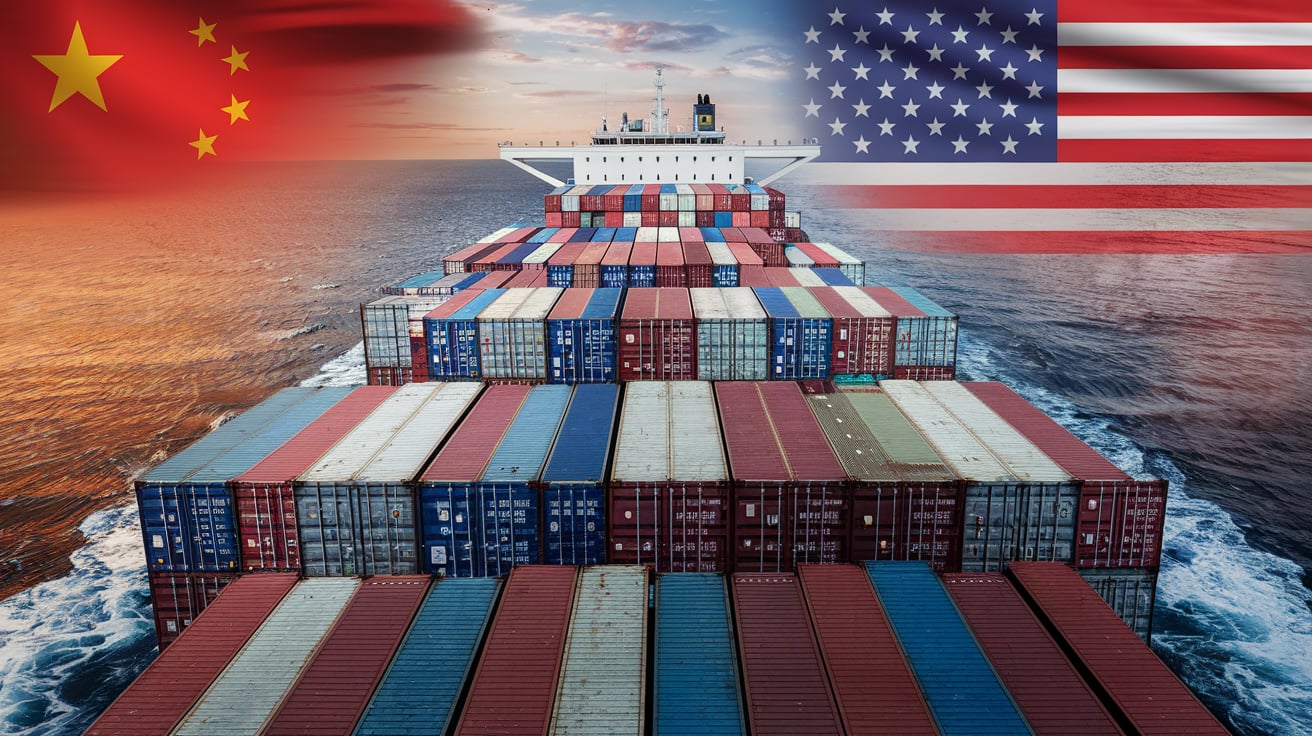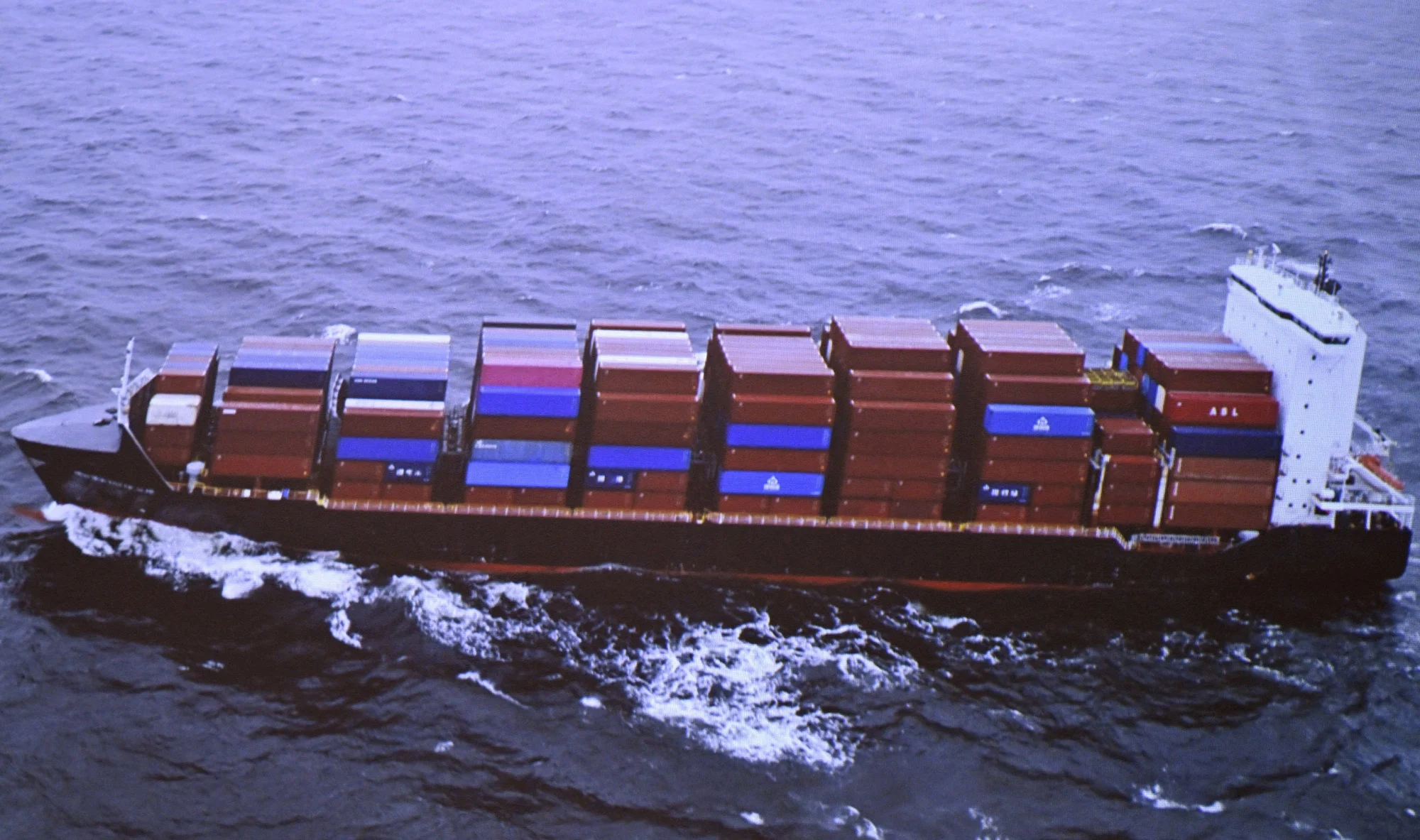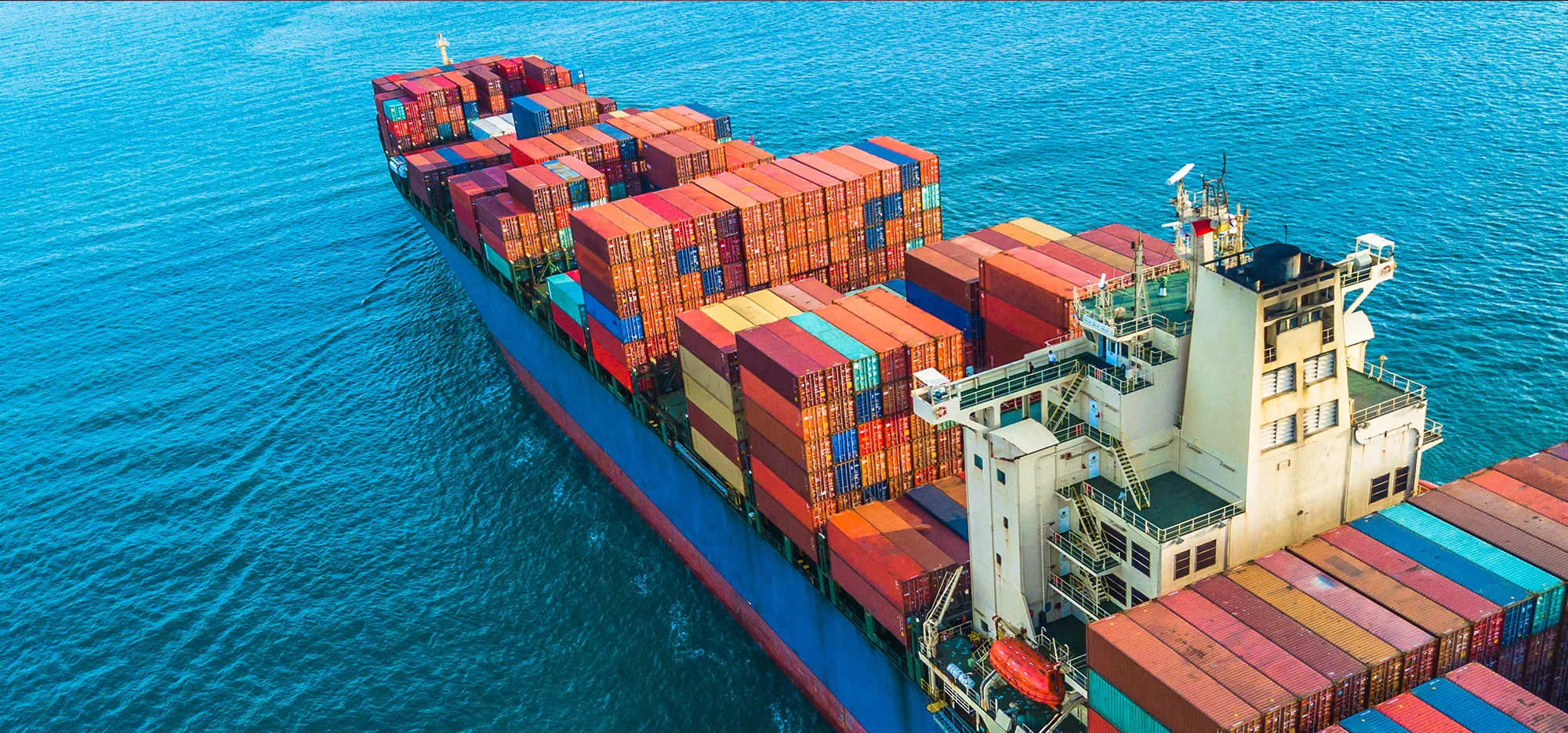Navigating the complexities of door-to-door shipping from China to Slovenia can significantly impact the success of your international trade endeavors. This comprehensive guide explores the essentials of door-to-door shipping, covering everything from the advantages of this logistics solution to the various shipping methods available, associated costs, and key customs procedures. Whether you’re a seasoned importer or new to the world of global logistics, understanding these aspects will empower you to make informed decisions and streamline your shipping processes effectively.
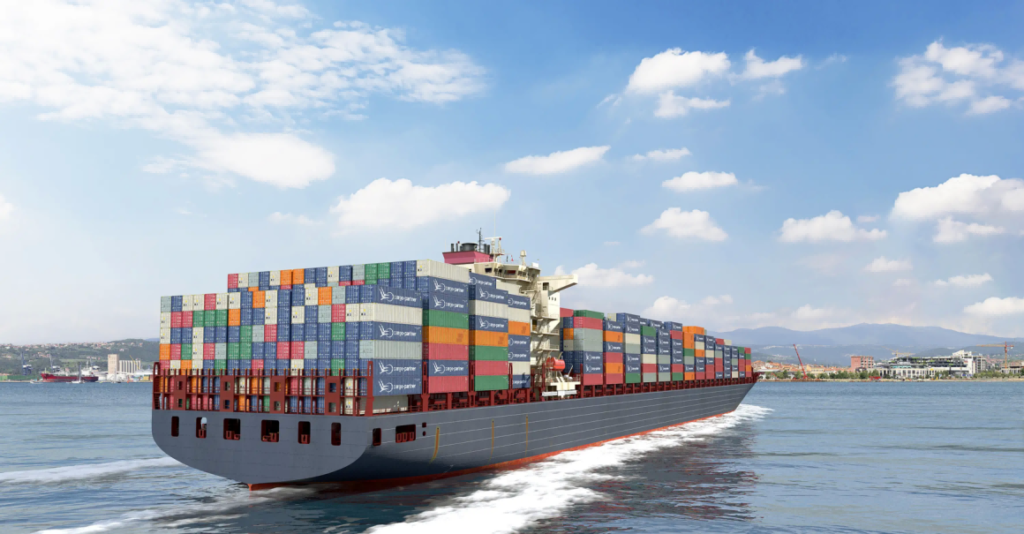
Understanding Door-to-Door Shipping
Door-to-door shipping is an all-inclusive logistics solution that facilitates the transportation of goods directly from the seller’s location to the buyer’s designated address. This method eliminates the need for the buyer to engage in multiple logistics processes, such as transportation, customs clearance, and delivery, making it a highly convenient option for international trade.
In essence, door-to-door shipping encompasses every step of the logistics chain. It begins with the supplier preparing the goods for shipment, includes transportation to the port or airport, and culminates in the final delivery to the customer’s doorstep. This comprehensive service is especially beneficial for businesses engaged in global trade, as it saves time and reduces the complexity of the shipping process.
Furthermore, door-to-door services can vary based on the logistics provider. Some may offer additional services, such as insurance services, packaging, and warehousing, further enhancing the overall shipping experience.
Why Choose Door-to-Door Shipping?
Choosing door-to-door shipping offers several advantages that can simplify global trade:
-
Convenience: The primary advantage is convenience. Businesses can focus on their core operations without worrying about logistics. Everything from pickup to delivery is managed by the freight forwarder.
-
Reduced Complexity: International shipping can be complicated due to various regulations and customs requirements. A reliable freight forwarder takes care of all customs clearance processes, ensuring compliance with local laws.
-
Cost-Effective: While some might perceive door-to-door shipping as expensive, it can actually be economical. The consolidation of services and potential bulk shipping discounts can lower overall costs.
-
Transparency: Many door-to-door shipping services provide tracking systems that allow shippers to monitor their goods in real time. This transparency fosters trust and enables better supply chain management.
-
Tailored Solutions: Different businesses have different needs. Many logistics providers, including Dantful International Logistics, offer customized shipping solutions that cater to the specific requirements of the customer.
Shipping Methods from China to Slovenia
When shipping goods from China to Slovenia, various methods are available, each offering distinct advantages and catering to different timelines and budgets. Below are the primary shipping methods.
Express Shipping Door to Door
Express shipping is the fastest method for delivering goods internationally. This service is particularly advantageous for urgent shipments or time-sensitive products. Utilizing reputable courier services like DHL, FedEx, or UPS, express shipping ensures that packages reach their destination in as little as 3-5 days.
Advantages of Express Shipping:
- Speed: Ideal for urgent shipments.
- Reliability: Often comes with guaranteed delivery dates.
- Tracking: Real-time tracking is generally available.
However, express shipping can be significantly more expensive than other methods. Businesses looking for rapid results are willing to pay the premium for this service.
Air Freight Door to Door
Air freight is a popular choice for shipping goods quickly over long distances. Generally, shipping from China to Slovenia via air freight takes 5-10 days, depending on the logistics provider.
Advantages of Air Freight:
- Speed: Faster than sea freight, making it suitable for high-value or time-critical goods.
- Less Damage: Air transport has a lower risk of damage compared to sea freight.
- Flexibility: Suitable for various cargo types, including perishable goods.
However, air freight is usually more costly than sea freight, making it a less favorable option for bulk shipments or low-cost products.
Sea Freight Door to Door
Sea freight is a cost-effective method for transporting large volumes of goods. The transit time from China to Slovenia can range between 25 to 45 days, depending on various factors, including shipping routes and port congestion.
Advantages of Sea Freight:
- Cost-Effective: The most economical option for large shipments.
- Capacity: Ideal for bulk goods and oversized cargo.
- Environmental Impact: Generally has a lower carbon footprint compared to air freight.
While sea freight is economical, it does come with longer shipping times. Businesses must weigh speed against cost when deciding on the best shipping method.
| Shipping Method | Estimated Transit Time | Cost Comparison | Ideal For |
|---|---|---|---|
| Express Shipping | 3-5 days | Most expensive | Urgent shipments |
| Air Freight | 5-10 days | Moderate | High-value or perishable goods |
| Sea Freight | 25-45 days | Least expensive | Bulk shipments |
Choosing the right shipping method depends on the specific needs of your business and the nature of the goods being transported. For comprehensive logistics solutions, consider partnering with Dantful International Logistics, which provides door-to-door shipping services tailored to meet your requirements efficiently. Our expertise in customs clearance, warehouse services, and insurance services ensures a seamless shipping experience, allowing you to focus on growing your business.
Read More:
- Shipping From China To Netherlands
- Shipping From China To Spain
- Shipping From China To Germany
- Shipping From China To France
- Shipping From China to Italy
- Shipping From China To Poland
- Shipping From China to United Kingdom
Cost of Door-to-Door Shipping from China to Slovenia
Understanding the costs associated with door-to-door shipping is essential for businesses engaging in international trade. The total expense can vary widely based on several factors, and it’s crucial to evaluate these elements when planning shipments.
Factors Affecting Shipping Costs
Several key factors influence the cost of door-to-door shipping from China to Slovenia:
-
Shipping Method: The choice between express shipping, air freight, and sea freight dramatically affects costs. Generally, express shipping is the most expensive, while sea freight is the most economical.
-
Weight and Volume: The dimensions and weight of the shipment are critical in determining costs. Freight carriers typically charge based on the greater of the actual weight or the volumetric weight.
-
Distance and Routes: The route taken and the distance from the origin in China to the destination in Slovenia can impact costs. Direct routes are usually more cost-effective than those requiring multiple stops.
-
Customs Duties and Taxes: Import duties, taxes, and customs clearance fees can add to the overall expense of shipping. It’s vital to understand Slovenia’s import regulations and tariffs to avoid unexpected costs.
-
Insurance: Opting for insurance services to protect valuable or fragile goods can increase shipping costs. However, this can be a worthwhile investment for high-value shipments.
-
Additional Services: Services such as packaging, handling fees, and storage can also contribute to the final shipping cost.
Cost Comparison by Shipping Method
The following table outlines the estimated costs associated with different shipping methods from China to Slovenia, providing a comparative overview to help businesses plan their logistics budget effectively.
| Shipping Method | Estimated Cost (USD) | Characteristics |
|---|---|---|
| Express Shipping | $30 – $50 per kg | Fastest option (3-5 days), ideal for urgent shipments, includes tracking. |
| Air Freight | $10 – $20 per kg | Moderate speed (5-10 days), suitable for high-value goods, real-time tracking available. |
| Sea Freight | $2 – $5 per kg | Most economical (25-45 days), ideal for bulk shipments, longer transit time. |
The above estimates provide a general guideline; businesses should consult with their logistics provider for precise quotes based on specific shipment details.
Shipping Times in Door-to-Door Shipping
Understanding the estimated durations for shipping methods is key for businesses planning their logistics. Each method offers varying transit times, influencing delivery schedules and inventory management.
Estimated Durations for Different Shipping Methods
The following table summarizes the typical shipping durations for various methods used in door-to-door shipping from China to Slovenia:
| Shipping Method | Estimated Delivery Time | Ideal Use Case |
|---|---|---|
| Express Shipping | 3 – 5 days | Urgent shipments, small packages, critical deliveries. |
| Air Freight | 5 – 10 days | Time-sensitive goods, perishable items, high-value products. |
| Sea Freight | 25 – 45 days | Bulk shipments, non-urgent goods, cost-saving measures. |
Factors That Can Affect Delivery Times
Several factors can influence the actual delivery times of shipments, including:
-
Customs Delays: Customs processing can introduce unexpected delays. Efficient customs clearance services can mitigate this risk.
-
Weather Conditions: Severe weather can disrupt logistics and transportation networks, leading to delays.
-
Port Congestion: Busy ports may experience delays due to congestion, particularly during peak shipping seasons.
-
Handling and Inspection: Additional handling or inspection by authorities can also lead to extended delivery times.
-
Supply Chain Disruptions: Events such as strikes or geopolitical issues can impact logistics operations, causing delays.
Businesses should be prepared for potential variances in delivery timelines and plan accordingly. By working with a reliable logistics provider like Dantful International Logistics, businesses can benefit from their expertise in managing and predicting shipping times effectively while ensuring a smooth door-to-door shipping experience.
You may be interested in the following related articles:
- Shipping From China to Serbia
- Shipping From China to Malta
- Shipping From China To Belarus
- Shipping From China To Croatia
- Shipping From China To Bulgaria
Customs Clearance and Duties
Navigating the complexities of customs clearance and understanding import duties is essential for businesses engaging in international shipping, particularly when importing goods from China to Slovenia. Familiarity with customs procedures and applicable taxes can facilitate a smoother shipping process and help avoid unexpected costs.
Customs Procedures in Slovenia
Customs clearance is a critical step in the international shipping process, ensuring that goods comply with local regulations before entering the country. The customs procedures in Slovenia follow established protocols that are essential for all importers:
- Documentation Requirements: Importers must prepare and submit various documents, including:
- Commercial Invoice: Detailing the transaction between the buyer and seller.
- Packing List: Outlining the contents of the shipment.
- Bill of Lading: A contract between the shipper and carrier.
- Certificate of Origin: Sometimes required to confirm the origin of the goods.
- Customs Declaration: Importers must file a customs declaration—a form that includes details about the goods being shipped, their value, and their intended use.
- Customs Inspection: Slovenian customs authorities may conduct inspections to verify the accuracy of the declaration and ensure compliance with regulations. This can include checking for prohibited items or ensuring that the goods meet safety standards.
- Payment of Duties and Taxes: Once the documentation is approved and any required inspections are completed, customs duties and taxes must be paid before goods can be released for delivery.
- Release of Goods: After all procedures are completed and payments made, the customs authority will issue a release order, allowing the shipment to proceed to its final destination.
Utilizing the expertise of a professional freight forwarder, such as Dantful International Logistics, can significantly streamline this process. They can manage customs clearance efficiently, reducing potential delays and ensuring compliance with Slovenian regulations.
Import Duties and Taxes
Import duties and taxes are fees imposed by the Slovenian government on goods brought into the country. Understanding these costs is vital for accurate budgeting and pricing strategies.
- Customs Duties:
- The rate of customs duties varies based on the type of goods being imported. These rates are typically determined by the Harmonized System (HS) codes applicable to each product.
- Depending on the classification, customs duties can range from 0% to 20%.
- Value Added Tax (VAT):
- Importers in Slovenia must also pay Value Added Tax (VAT) on imported goods, which is currently set at 22%. This tax is calculated on the total value of the goods, including customs duties.
- Certain goods may be eligible for reduced VAT rates, so it’s important to consult with customs regulations to determine applicable rates.
- Additional Fees:
- Importers should also be aware of other potential fees, such as environmental taxes, excise duties (for specific products like alcohol and tobacco), and handling fees charged by the freight forwarder or customs broker.
Accurate estimation of these duties and taxes not only aids in financial planning but also helps in setting competitive pricing for products in the Slovenian market.
Insurance and Tracking
To safeguard shipments and enhance supply chain visibility, investing in cargo insurance and utilizing tracking systems are prudent measures for businesses involved in international trade.
Cargo Insurance
Cargo insurance is crucial for protecting shipments against potential losses or damages that may occur during transit. This type of insurance covers various risks, including:
-
Loss or Damage: Compensation for lost or damaged goods due to theft, accident, or natural disasters.
-
Liability Coverage: Coverage for legal liabilities arising from damage to other parties’ property or injuries resulting from the shipment.
-
All-Risk Policies: These comprehensive policies cover a wide range of risks, providing peace of mind for importers.
Choosing the right level of cargo insurance depends on the value of the goods being shipped and the associated risks. Consulting with logistics experts at Dantful can help importers determine the appropriate insurance coverage tailored to their needs.
Tracking Your Shipment
Tracking shipments in real time enhances transparency and provides valuable insights throughout the shipping process. Features of effective tracking systems include:
-
Real-Time Updates: Many logistics providers offer online platforms where businesses can access real-time updates on their shipments’ status. This includes information on location, estimated arrival times, and any delays that may occur.
-
Notification Alerts: Automated alerts can notify stakeholders of significant changes in the shipping process, such as customs clearance completion or delays.
-
Delivery Confirmation: Once a shipment is delivered, tracking systems generally provide confirmation of delivery, helping businesses confirm receipt and manage inventory effectively.
Using a professional freight forwarder like Dantful International Logistics ensures that businesses can take advantage of the latest tracking technologies, improving visibility and communication throughout the shipping process.
Incorporating cargo insurance and tracking solutions into the shipping strategy not only protects investments but also enhances operational efficiency, ultimately contributing to better customer satisfaction and smoother business operations.
Choosing the Right Shipping Partner
Selecting the appropriate shipping partner is a crucial decision that can significantly impact the efficiency, reliability, and overall success of your logistics operations. A well-chosen partner can streamline the shipping process, reduce costs, and enhance customer satisfaction.
Evaluating Shipping Companies
When evaluating potential shipping companies, several factors should be considered to ensure you find a reliable and capable partner:
-
Experience and Expertise: Look for companies with a solid reputation and extensive experience in international shipping, especially in your specific market. An established company is more likely to be familiar with the complexities of customs regulations and logistics challenges.
-
Service Offerings: Assess the range of services provided, including door-to-door shipping, air freight, sea freight, customs clearance, and additional services like warehousing and insurance. A comprehensive service provider can simplify logistics by offering all necessary services under one roof.
-
Technology and Tracking: In today’s digital age, a shipping partner should provide advanced tracking solutions to monitor shipments in real time. This capability enhances transparency and allows for prompt decision-making in case of delays or issues.
-
Customer Support: Excellent customer service is essential for a smooth shipping experience. Evaluate the responsiveness and availability of the company’s support team, as well as their willingness to address your specific needs and concerns.
-
Pricing Structure: Compare pricing models among potential partners, ensuring that you understand the complete cost structure, including any hidden fees. While cost is important, it should not be the sole deciding factor—quality and reliability should also be prioritized.
-
References and Reviews: Seek feedback from previous clients to gauge the company’s reliability, efficiency, and overall satisfaction. Reading online reviews and testimonials can provide valuable insights into the experiences of other businesses.
By carefully evaluating these factors, businesses can make informed decisions and select a shipping partner that aligns with their logistics goals.
Dantful Door-to-Door Service
Dantful International Logistics stands out as a premier choice for businesses seeking a highly professional, cost-effective, and reliable logistics partner. Their door-to-door shipping service is tailored to accommodate the specific needs of global traders, providing a seamless experience from the point of origin to the final destination.
-
Comprehensive Solutions: Dantful offers a full suite of services, including air freight, sea freight, customs clearance, warehousing, and insurance services. This one-stop-shop approach simplifies the logistics process and enhances operational efficiency.
-
Expertise in Customs Clearance: Navigating customs regulations can be complex, but Dantful’s team of experts ensures compliance with all local laws and regulations, minimizing delays and facilitating smooth shipments.
-
Real-Time Tracking Technology: Dantful utilizes advanced tracking systems, allowing clients to monitor their shipments’ progress in real time. This transparency fosters trust and enables proactive management of logistics operations.
-
Dedicated Customer Support: Dantful provides exceptional customer service, with a dedicated team available to assist clients throughout the shipping process. Their commitment to addressing specific needs and challenges sets them apart in the logistics industry.
Choosing Dantful as your shipping partner can ensure a smooth, efficient, and reliable shipping experience, enabling you to focus on your core business activities.
Dantful International Logistics Services:
- Dantful Ocean Freight Services
- Air Freight From China
- Amazon FBA Freight Forwarding
- WAREHOUSE Services
- One-Stop Customs Clearance Solution
- Cargo Insurance Services in China
- DDP Shipping Services By Dantful Logistics
- Out of Gauge Cargo Transportation Shipping Services

Young Chiu is a seasoned logistics expert with over 15 years of experience in international freight forwarding and supply chain management. As CEO of Dantful International Logistics, Young is dedicated to providing valuable insights and practical advice to businesses navigating the complexities of global shipping.











